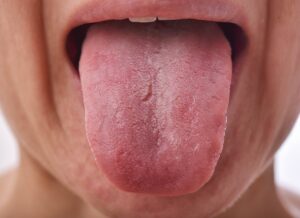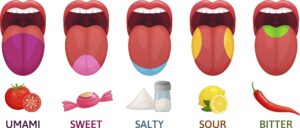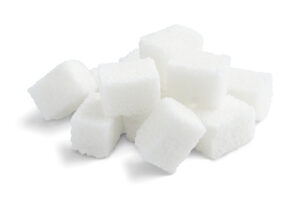
Researchers continually reveal astounding new findings about the secrets of the human brain. This organ is essentially the master control center of the entire body. It sends out signals of pain, regulates feelings of hunger and fullness, triggers states of sleepiness and fatigue, and so much more.
Unlike what was once assumed, scientific studies found that the brain is very active during sleep. This is the period when the brain resets a series of “checks and balances” so the waking body can begin the day anew with more efficiency.
If you’re a reader of our previous articles regarding sleep apnea and heavy snoring, you’re likely aware that interrupted sleep night after night can take a serious toll on overall health. Insufficient sleep from the pauses in oxygen caused by sleep disorders can increase the risk for heart attack, stroke and high blood pressure. It can also affect one’s lifestyle, causing daytime fatigue, greater hunger, more likelihood for accidents, and low energy levels.
Today I’d like to address the brain’s association to the tongue. It is almost continually in motion and one of the 5 strongest muscles in the body. The tongue, mostly constructed of muscle, is top-coated with tiny, bumpy protrusions on its surface. These are known as papillae, which are the tongue’s source of taste and touch.
While the tongue makes it possible to feel the form and texture of food, it is also the tool that helps move food around in the mouth as we chew. Additionally, it is a major player in pronunciation.
When it comes to taste, different areas of the tongue are more sensitive to certain tastes. For example, the tip of the tongue detects sweet and salt to the greatest extent while the sides detect sour.
 Many people have a preference over sweet or bitter or salty. For example, my youngest son would much prefer a salty bowl of popcorn over a dill pickle. A lot of this has to do with the reaction of the tongue. Dietary preferences are influenced by taste perceptions, which have rather complex pathways.
Many people have a preference over sweet or bitter or salty. For example, my youngest son would much prefer a salty bowl of popcorn over a dill pickle. A lot of this has to do with the reaction of the tongue. Dietary preferences are influenced by taste perceptions, which have rather complex pathways.
What is especially interesting, however, is how the brain reacts to taste when the tongue misinterprets the content. Thus, when the tongue detects “sweet,” it sends a message to the brain of an incoming sweet content. When the brain realizes the content is not as messaged, the reaction can cause a misfire. This can sabotage weight loss efforts.
Let’s go back to the 1960’s for a few moments. Remember the emergence (and popularity) of Tab and Fresca, both diet colas? When Americans realized they could consume sweet-tasting products without a caloric burden by turning to artificial sweeteners (such as saccharin, sucralose and aspartame), they loaded up.
Yet, the weight loss aspirations of Americans not only fell short, a surge of weight gain began. In 1962, American adult obesity rates were just over 13%. By 1990, they were over 23% and by the year 2000, rates had risen to 31%. Today (as of 2018), they are at 42%. (https://www.cdc.gov/nchs/data/hestat/obesity-adult-17-18/obesity-adult.htm)
By no means is the obesity rate of American adults to be blamed on diet colas. However, the brain is the brain is the brain. And the same for the tongue. These organs are designed to work together to help the body process what is taken in. When the brain sets itself up to process an energy source due to detecting sweet, there is a penalty. This comes in the form of the brain telling the body to “crave” the sweet source it is now in gear to process.
A recent study suggests that the consumption of artificial sweeteners could be training the body to accumulate fat in a “dose-dependent” fashion. In other words, the more artificial sweetener you consume, the more fat the body creates and stores. Talk about backlash!
New research looks at the effect that artificial sweeteners have on the cells that make up our fat stores. These cells help to transport glucose. Thus, when we consume more sugar, the cells become larger by accumulating more glucose and fat. In one recent study, it was found that the artificial sweetener sucralose are able to increase cells that promote fat accumulation.
Back to the tongue for a moment… In addition to the tongue’s taste preceptors, the shape and size of the tongue can impact your potential for sleep apnea or heavy snoring. Interrupted sleep or pauses in breathing during sleep can deplete the necessary pattern of REM sleep that is how the body rejuvenates itself. As mentioned above, the brain uses these periods to do its housekeeping. Without this time, the complications can become serious, and even deadly. (Watch a brief video on our advanced diagnostic technology at: https://www.banrbarbatdds.com/sleep-apnea-snoring/)
This info reinforces the important role the mouth has in our overall health and well-being. Oral health can impact the immune system, risk levels for developing or worsening of serious health problems (such as heart attack and stroke) and even our gut health.
An important part of daily at-home care is to keep the teeth, gums and even the tongue healthy with a thorough oral hygiene regimen. In addition to twice daily brushing and daily flossing, brush your tongue with your toothbrush after brushing teeth. Many of today’s toothbrushes have a tongue cleaning surface on the back side of the bristles. Or, consider purchasing a tongue scraper. These are inexpensive and easy to use. They are flexible strips that you pull forward from the back of the tongue. After a couple of swipes, swish several times to rid the mouth of uprooted bacteria.
Your 6-month dental hygiene check-ups include a “cleaning” to help you maintain a healthy smile between visits. We can also look for suspicious spots or vulnerable areas. Our goal is to help you avoid or minimize problems so your smile is a positive part of having good overall health.
Get to know our Shelby Township dental office, which offers comprehensive care for all ages: DrBarbatIntro
You can also begin with a complimentary consultation by calling 586-739-2155 or simply tap here. New patients are always welcome!
Other sources of this content:
https://www.smithsonianmag.com/science-nature/artificial-sweeteners-may-make-you-fat-180968552/